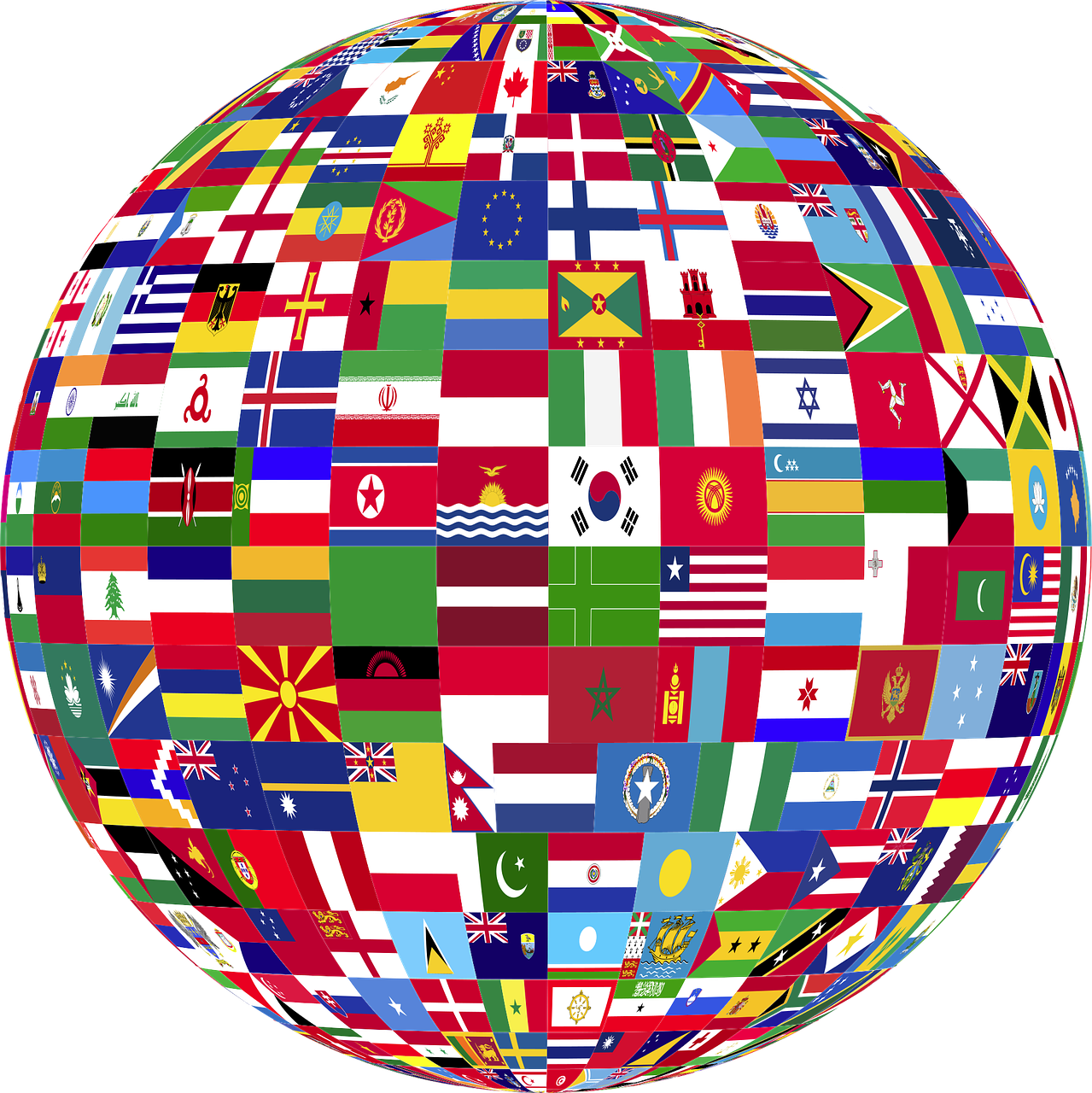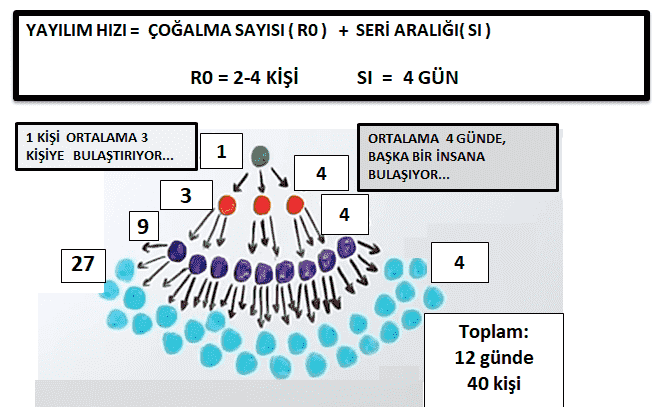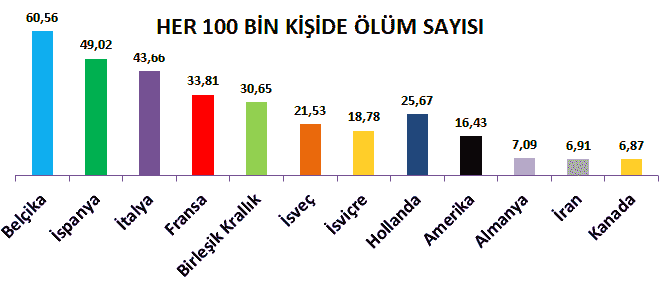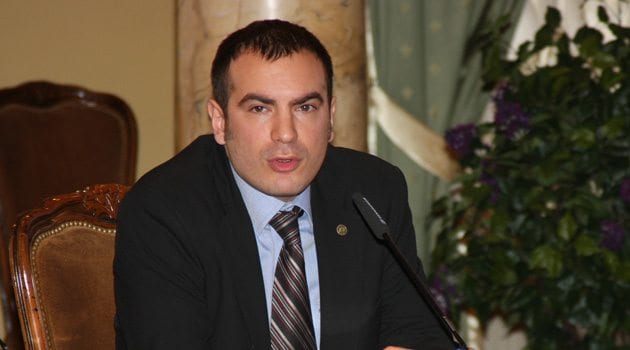One of the most discussed questions in the world right now is what kind of a world awaits in the post-coronavirus era. We might also ask whether the changes in store can come about without a major global conflict.
The End of Liberal-Globalist system
Almost everyone agrees that the liberal-globalist system is now collapsing. This is agreed on not only by those who are willing to see the system go, but also by those who want to save it via state intervention.
In terms of the economy, the era of “Laissez-faire, Laissez-passer” is over. In the fight against the coronavirus pandemic, countries with heavy state presence in the economy were successful, while countries with more liberal systems required centralized intervention. US President DOnald Trump had to threaten the Ford Company to comply with state measures, while the price of a practically worthless mask under normal market conditions shut up a hundred fold, putting people in a difficult situation. In broad strokes, the centralized economic system has proven itself to be a necessity.
The “ideal” of a world without borders, is now over. After the Coronavirus pandemic, the boundaries between countries had to be redrawn with thick lines. Even French President Emmanul Macron said that the end of the Schengen Area is imminent for the EU. The Western centers are now explicitly stating that nation-states will rise in the coming era. On the other hand, these boundaries also mean the revival of customs barriers. The economics of national production and national self-sufficiency have become more important than anything else. Support and protection for domestic production has become a vital task in the process of the eradication of parasitic economics.
Neoliberalism and individualist freedom has also come to an end. While the well-disciplined societies were successful in the fight against the pandemic, the “open society” has ended. At the same time, a strong, regulative and protectionist state model has become an absolute necessity. The importance of social solidarity has been revealed. It is well understood that this pandemic can not be overcome by individualism, and that the individual can not be safe without the rest of society being safe as well.
In short, these changes are doubtless and pervasive. However, the specific intentions and the solutions are different: will the world hold on desperately to the collapsing structure or begin building a new one?
The cause of the crisis is the system, not the Coronavirus
It should be noted that the crisis of the system was not actually caused by the Coronavirus pandemic. The system, which is controlled by something akin to global mafia-cult relations, had long moved away from production, relying on private profits and trickery, where the most profitable industries were the arms market, finance and narcotics: a system already in chronic crisis. The pandemic has revealed contradictions while accelerating and deepening them. If it was not for the Coronavirus, the world would have faced a similar crisis eventually.
Science, Enlightenment, Humanism and the Artificial Intelligence
With all this in mind, humanism, science and enlightenment will be the rising values of the post-Coronavirus world. Of course, it is also important to add artificial intelligence to this list. It was already clear that artificial intelligence would play a major role in the future before the pandemic. However, quarantine implementations and obligations to maintain a physical distance has made artificial intelligence several times more important, in terms of ensuring the continuity of production and daily life with the least amount of losses and risks.
Sides of a possible war
There is another argument about the post-Coronavirus world: Is there a risk that this crisis which we are going through may lead to a world war? A nuclear war?
In order to discuss the answer to this question, it is necessary to first discuss the possible sides of such a war and the balance of power between them. The possibilities are limited: one side will be the United States and the other will be Russia and China, either separately, or in a coalition.
Results of war simulations
We can look to war simulations of recent years in order to provide a database on the balance of power. Official or semi-official Atlantic centers frequently resort to such simulations. Particularly, the United States is comparing its armed forces with Russia and China. As it is reflected in the press, the results are not very hopeful for the United States. Especially when China and Russia are alongside each other, according to these simulations, the US has no chance of winning a potential war.
Moreover, in simulations like these, military power is the sole basis of comparison, and factors such as patriotism and social cohesion are not taken into account, both of which are advantages for Eastern countries. Wars are not won only with guns, yet the US lags behind in that regard as well according to their own calculations.
The strategy of splitting China and Russia has failed
The United States is well aware that if China and Russia unite against it, they will not have a chance in any future war. Trump’s strategy to pull Russia away from China and to isolate Beijing, however, has come to nothing. As a matter of fact, Moscow and Beijing have become much closer to each other lately. We can even say that Russian-Chinese relations are in their political, economic, military golden age. The fight against the Coronavirus pandemic has also strengthened this cooperation.
Therefore, we cannot expect the United States to wage a war without splitting China and Russia first. During the Cold War, there were some conditions favorable for the United States in this regard. The Atlantic front was in serious fear with the 1949 Chinese Revolution. A world in which the USSR and China are allies could have turned into a nightmare for the Western camp: something they used to call the Red-Yellow Scare.
However, the Moscow-Beijing split (aside from the ideological disagreements, the USSR adopting an imperialistic character, the decay of the Soviet system and its shift away from socialism, etc.) was one of the main reasons behind the US victory of the Cold War. It is decisive whether a rivalry or a cooperation is dominating the Chinese-Russian relations in terms of the balance of power in the world. Today, cooperation is dominant, and this creates a significant plus on the Eurasian side.
This is not just in terms of the military factors. We also need to put the world economy shifting towards the Pacific and the growth rate that China has achieved into account.
The disintegration of the Atlantic camp
That is not the only situation in terms of the balance of power. There is also a disintegration of the Western camp as well. Europe is now getting out of the grasp of the United States. However, during the Cold War, Russia and China were split apart, and Europe was grasped by the United States, or at least they were united against the “communist threat”.
Now, Europe is on its way to become a separate pole of its own. NATO has lost its integrity, the perception of common threat has weakened: everyone in NATO is playing their own game, so to speak. Some member states were seen as an ally to some, and a threat to another. We looked at the details of this issue in our article titled, “NATO’s 70th anniversary: brain death has occured, is it time to pull the plug?”
Deepening controversies in the West as a result of the pandemic
On the other hand, the Coronavirus pandemic has deepened the crisis within the Western camp. In fact, the possibility of serious breaks are being discussed. It is certain that some important problems will pop up in the EU structure. Some even speak of a possibility of a total disintegration. The question of leaving the EU has already been raised in Italy. Germany ranks first on the list of most hated countries.
With this, Western solidarity has turned out to be little more than a fairy tale. Even beyond that, the whole world has witnessed the Western countries shamelessly stealing other countries’ medical supplies. NATO has failed to respond to requests for help from member countries.
In contrast to this, China and Russia have gained reputation for their aid to countries within the Western camp. In Italy, a NATO country, the Russian army has arrived as a medical group. Sympathies for Russia and China have increased in Italy and other countries.
While the West steals from each other in a panic, Eurasia has shared, not only among itself, but even with the West. It has been recorded in the pages of history that a Russian military transport plane landed to bring aid to New York, despite being on Washginton’s sanctions list.
The US will play an away game
The United States is losing its collaborators within Eurasia, and even its allies in the West. It should be noted that the arena of a possible future world war will take place as an away game for the United States. Whether it would be West Asia, the Middle East or Central Asia, the United States would need military bases to settle in the region. As a result, Washington is likely to hit a wall.
Different trends have begun to emerge within the historical allies of the United States in the region. Qatar is caught up with one trend, while Saudi Arabia has to take different equations into account etc. and this is without even mentioning Turkey, since it has already turned its course towards Eurasia. The United States is unlikely to find bases to wage a war in the region.
The destroyed reputation of the US and the multipolar world
In addition, the US, which has fallen into a decline with the coronavirus pandemic, has lost its international reputation as well. The hegemonic belief that the US is a country capable of everything has been destroyed. The number of dead from the pandemic in the US has surpassed even the numbers of the Vietnam War. The number of dead in socialist Vietnam today, on the other hand, is zero. Even American health care organizations themselves say that this data is far from being exaggerated. The US is losing against Vietnam once more. Moreover, the reaction towards the United States’ policies indicates that Washington has suffered a serious loss of reputation and is likely to suffer even more in the future.
On a related note, the ultimatums of the US no longer work the way they used to. It is agreed upon that globalization, US hegemony and the unipolar world order, are coming to an end. At the same time, the forces of the coming multipolar world order are settling in more than ever before. These are important factors in debates around the possibility of a future world war.
Weapons which will be pulled out in the United States itself
Moreover, the United States is also on the edge of some important problems internally. Apart from the failure in the fight against Coronavirus, the United States is experiencing an intense loss of credibility. The increase in individual armament in the country in the face of the pandemic is worth noting. Arguments over wearing masks have already led people to begin shooting each other, while physical fights are ongoing in stores where toilet paper has run out… imagine what it will be like if food becomes scarce. In contrast to this, the biggest weapon of the Eurasian front is the social solidarity and the rise of national awareness.
The pandemic had also deepened the conflict between the states themselves. The US is becoming more divided instead of uniting against the pandemic.
This division peaked when President Trump came into power. Vulnerabilities are appearing within the public, between the states and in the relation between states and the federal government. We have been watching government institutions infight with increasing frequency over the past few years.
Can Washington engage in a World War while it suffers contradictions domestically? In fact, Trump’s idea “to stop dealing with the outside world, and channel the energy and the power to solve the internal problems” was the most logical thing for the United States, but his program has proven difficult to implement.
Experience of the World wars
Another point is, when we look at the breaking point of previous world wars, we clearly see how many countries have been left behind or exploited by the imperialist system, while imperial powers desperately attempt to maintain this relationship. Germany’s role in both world wars was predicated on such motivations. Today, the US is the one on the decline, it is trying to maintain its order at any cost rather than allowing a new order to arise where it might not be on top. Its interests are more in favor of war than peace given what they have to lose.
It is clear that the United States will not accept this decline, but the balance of power also prevents it from waging a world war. Regional wars and provocations will continue into the upcoming era, but a full-fledged war does not seem very likely.
Is a nuclear war possible?
In addition to all this, there is also the probability of a nuclear war. Let us evaluate it frankly. The US used the atomic bomb on Japan when it discovered this technology. However, back then, this technology was only in the hands of the United States, there was no other power to balance it out. That is where the US got its courage from. But when the USSR had developed its own atomic bomb in 1949, the likelihood of the use of the nuclear weapons was significantly reduced.
Now the fact that this technology exists in many other countries has created a balance. The long-lasting destructive effects of the nuclear weapons and the fact that retaliation would be swift takes the nuclear option off the agenda. A well-balanced distribution of the nuclear weapons, or the abundance of some sort, ironically guarantee that they will not be used.
Deterrence is essential
There is little danger of a world war, but this should not lead to relaxation by Turkey or any other Eurasian countries in terms of military matters. Quite the opposite actually… Aside from the regional conflicts, power is not only a means of winning a war, it is also one of the most important necessities to prevent a possible war. It is necessary to maintain a deterrent force. This is what actually prevents a rival from engaging in risky adventures that may lead the world to a disaster.
Related articles
-
United World International United World International is an independent analytical center, where politologists and experts in international…
-
Coronavirus, oil war, Turkish conflictCoronavirus By the end of the week, the number of confirmed coronavirus cases in the…
-
The world after coronavirus: the New Chinese CenturyAn increasing number of countries are imposing a state of emergency and announcing quarantine measures…








